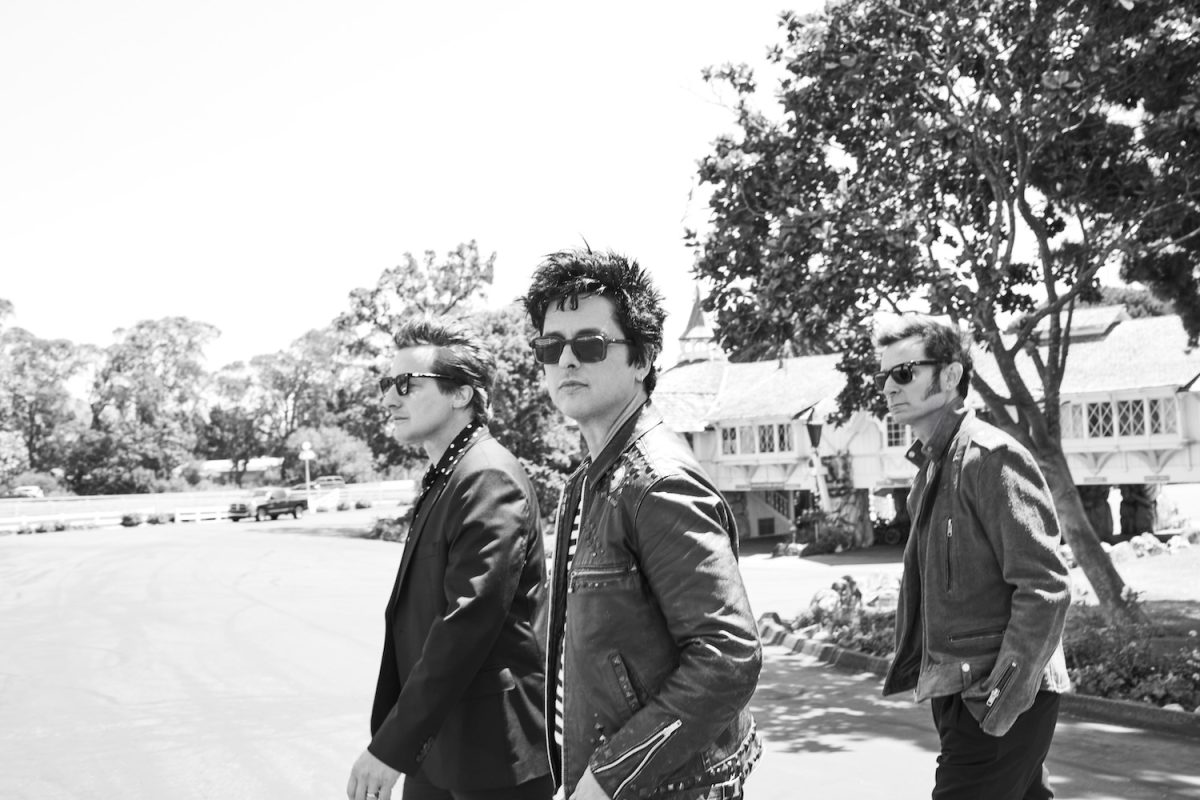In 1993, Green Day recorded its third album, “Dookie,” during a period of three weeks — a stark comparison to the mere three days that they had worked to record their previous album “Kerplunk.” The extra time allowed them to formulate their now-iconic crisp and confident sound. The album’s recent reissue, which was released on Sept. 29, honors its 30-year-long success.
While “American Idiot” may be the hallmark album of the punk-rock band’s discography, “Dookie” was their original starmaker. Being the first production under Reprise Records, the album catapulted vocalist Billie Joe Armstrong, guitarist Mike Dirnt and drummer Tré Cool into universal acclaim.
Reissuing the album rather than rerecording creates a sense of nostalgia for longtime fans while giving the band the opportunity to release additional content. Following the album’s traditional collection, the 30th anniversary record is composed of four subsequent disks: an array of cassette demos, songs previously excluded from the original album, recorded tracks from the band’s Woodstock 1994 set and previously unreleased recordings from their 1994 Barcelona show.
Songs across “Dookie” possess an energetic sound that marked a shift in the previously grunge-dominated ’90s rock scene. Where popular punk bands like Nirvana and Black Flag were characterized by their heavy sounds and nihilism, the album’s sound was unabashedly melodic. It was lauded for its relatability both in terms of acoustic and lyrical content and carved out a space in the scene for other eventual classics like Blink-182 and The Wallflowers.
“Dookie” originally sold over 20 million copies worldwide, earning itself an RIAA Diamond certification and a 1995 Grammy Award for Best Alternative Album.
In the chorus of the album’s opening song, “Burnout,” Armstrong declares “I’m not growin’ up / I’m just burnin’ out.” The song resonates with anyone who has felt the weight of the world on their shoulders and battled with the urge to simply shrug it off. It’s a sentiment that can be echoed anywhere from a high school classroom to the workplace, setting a playfully cynical tone for the rest of the album.
“Dookie” first walks the line of predictability and risks merging craftwise with the band’s other records. However, Green Day uses its fourth track to subvert a traditionally upbeat rhythm — as well as any seasoned listener’s expectations. “Longview” opens with a fresh bassline and an emphasized drumbeat, a refreshing shift downward in tempo from the album’s prior songs. The chords are rife with longing for a more exciting time.
This is offset by the idle moments in “Sassafras Roots,” with Armstrong imploring “Well, I’m a waste like you / With nothin’ else to do / May I waste your time too?” The two songs depict the often contradictory complaints and satisfactions of adolescence.
Despite the album’s lively sound, “Dookie” as a whole depicts a frenetic spiral into frustration, evoking feelings reminiscent of the final days of summertime — a longing and readiness for change intermingled with a desire to maintain a quiet status quo. In a 2020 interview with Rolling Stone, Armstrong labeled the tune of the track “She” as “kind of a cult hero… it had a life of its own.” The song engages its audience through the use of provocative questions: “Are you locked up in a world that’s been planned out for you? / Are you feeling like a social tool without a use?”
The songs on the record are predominantly penned by Armstrong, constructing a journey through themes of anxiety, bitterness, boredom or sexuality, and are best listened to sequentially, with some songs casting out allusions to others. Armstrong claims he “won’t be there in the end if you come around,” directly evoking themes from chart-topping album addition “When I Come Around.”
In “Having a Blast”, Armstrong paints a picture of a suicide bomber, a character who claims that “no one here is getting out alive / This time I’ve really lost my mind, and I don’t care.” Armstrong has stated that the song is “about wanting to blow yourself up because you’re going through some kind of torment,” and while the imagery serves the band’s usual risque lyrical intent, it’s the album’s least comfortable listen given America’s current social and political context.
A standout among the unreleased tapes is the “Christie Rd. – Outtake” demo, a song conceived during the era of “Dookie” but later released on the band’s “Kerplunk” album. Cast in a slower tempo and with slightly different instrumentals, the early tape gives insight into the band’s developmental process.
Listening to the record’s plethora of content evinces the album’s timeless nature and the immortality of the band itself. Green Day’s reissue of “Dookie” poses an opportunity for this seminal record to be reexperienced. Do yourself a favor and take the spiral: it slots into the chaotic interludes of both student and city life rather perfectly.
Contact Eleanor Jacobs at [email protected].
























































































































































